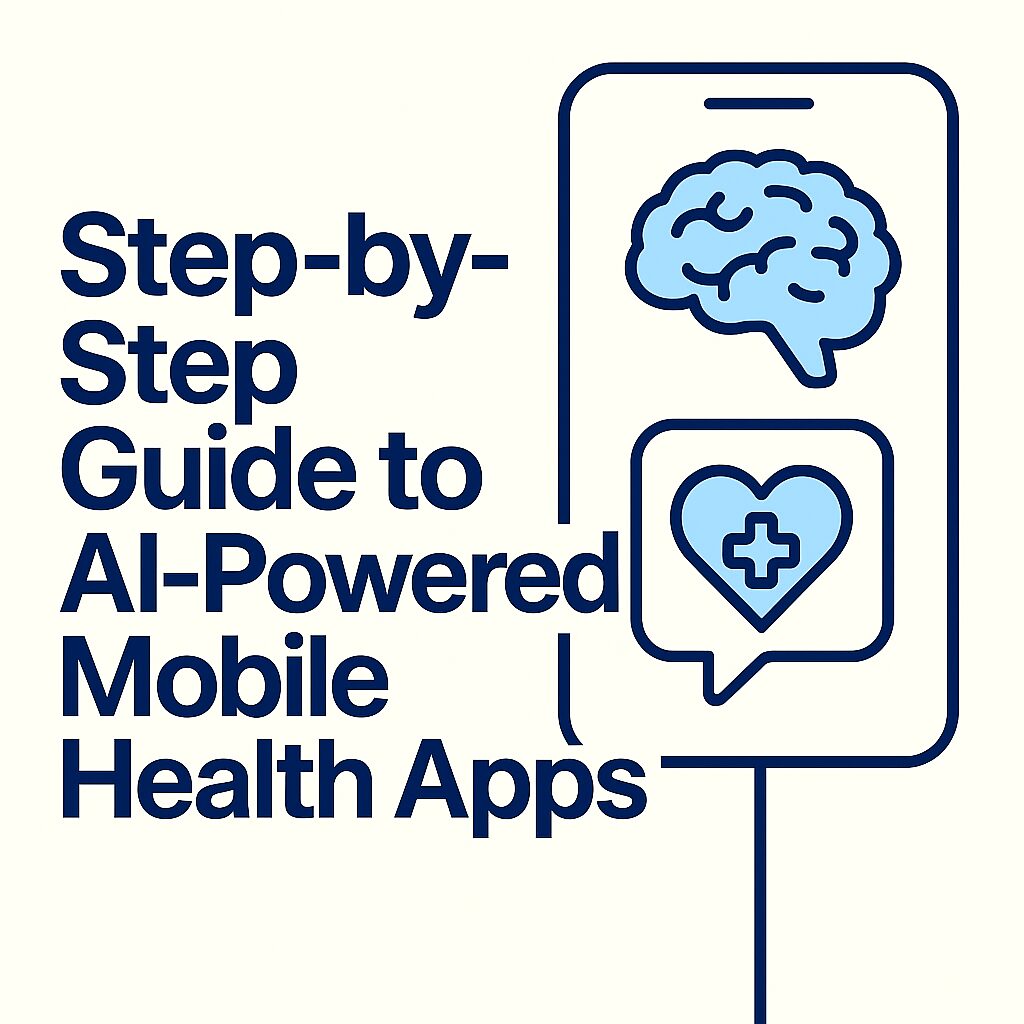Introduction
AI-powered mobile health apps are transforming healthcare by enhancing diagnostics, personalizing treatments, and improving patient engagement. These apps leverage machine learning, predictive analytics, and real-time monitoring to support medical professionals and users alike. Whether tracking vitals, offering virtual consultations, or predicting health trends, AI-driven solutions bring efficiency and accessibility to digital healthcare.
This guide outlines how to develop AI-powered mobile health apps, structured with SEO-friendly formatting to maximize visibility and user engagement.
1. Why AI is Transforming Mobile Health Solutions
Traditional healthcare apps offer basic tracking and appointment scheduling, but AI adds intelligence through automation, early detection, and customized health insights.
Key Benefits of AI-Powered Mobile Health Apps
- Real-Time Health Monitoring & Diagnostics – AI detects abnormalities and suggests potential treatments.
- Personalized Health Recommendations – AI tailors fitness, nutrition, and medication plans to user needs.
- AI-Enabled Virtual Assistants & Chatbots – AI answers medical queries and provides 24/7 support.
- Predictive Analytics for Early Disease Detection – AI forecasts health risks based on patient history.
- Automated Medical Data Processing – AI organizes health records for doctors and users alike.
AI-driven mobile health apps enhance efficiency, accessibility, and healthcare personalization.
2. Core AI Technologies for Mobile Health Apps
AI-powered healthcare applications rely on automation, deep learning, and data analytics to provide accurate insights.
Essential AI Technologies for Mobile Health Apps
- Machine Learning for Medical Predictions – AI forecasts disease risks based on past health data.
- Natural Language Processing (NLP) for Patient Interaction – AI enables chatbot-driven health consultations.
- Computer Vision for Medical Image Analysis – AI detects irregularities in X-rays, MRIs, and scans.
- IoT & Wearable AI Integration – AI connects to smart health devices for real-time monitoring.
- Predictive Analytics for Health Trend Forecasting – AI analyzes population health data for proactive solutions.
These technologies improve patient care, diagnostics, and treatment accuracy.
3. Step-by-Step Guide to Developing AI-Powered Mobile Health Apps
Building AI-driven healthcare solutions requires structured development and seamless integration.
Steps for AI Mobile Health App Development
- Define Healthcare App Objectives – Determine whether AI will focus on diagnostics, patient tracking, or wellness guidance.
- Collect & Process Health Data – AI models require patient history, wearable device data, and clinical records.
- Develop AI-Powered Health Analytics Models – AI must identify patterns and make accurate predictions.
- Integrate AI with Mobile & Wearable Devices – AI should sync with fitness trackers and medical tools.
- Enable AI-Driven Personalization & Alerts – AI must provide tailored health advice and emergency notifications.
- Optimize AI for Compliance & Security – AI-powered health apps must adhere to medical privacy regulations.
A well-structured AI mobile health app ensures user trust and healthcare effectiveness.
4. SEO Optimization for AI Health Apps
SEO strategies enhance search visibility and credibility for AI-powered healthcare solutions.
Best SEO Practices for AI Health Platforms
- Keyword Optimization – Use terms like “AI mobile health apps,” “smart healthcare assistants,” and “AI-powered patient monitoring.”
- Health & Wellness Case Studies – Publish success stories demonstrating AI’s impact on healthcare.
- Mobile-Friendly & Cross-Platform Optimization – Ensure AI health apps function seamlessly across iOS and Android.
- Partnerships with Medical Experts & Institutions – Strengthen credibility through collaborations with doctors and research facilities.
- Optimized Metadata & SEO Tags – Improve rankings with search-friendly descriptions and headings.
SEO-focused strategies increase adoption and engagement for AI-driven health apps.
5. Improving AI Mobile Health Apps for Long-Term Success
AI health apps require continuous improvements to enhance accuracy and patient usability.
Metrics for AI Health App Optimization
- Diagnostic Accuracy & Prediction Reliability – AI must refine health assessments with updated datasets.
- User Engagement & Retention Metrics – AI should provide interactive, meaningful health experiences.
- Security & Privacy Enhancements – AI must protect patient confidentiality and comply with regulations.
- Integration with Healthcare Providers & Telemedicine – AI should connect users with doctors for real-time consultations.
- Multi-Language Support & Global Accessibility – AI must expand usability across different regions.
Regular refinements ensure AI-powered healthcare apps remain effective and patient-centered.
Conclusion
AI-powered mobile health apps improve patient monitoring, diagnostics, and personalized healthcare, bringing medical support to smartphones and wearable devices. By integrating machine learning, NLP, and real-time analytics, developers can create AI-driven platforms that revolutionize healthcare.

